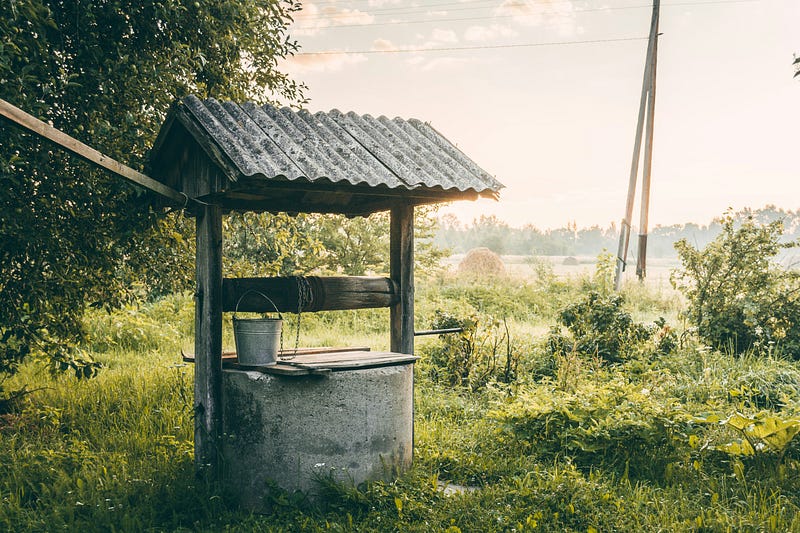Black Spot
A short story of betrayal, disappearance, and reappearance.

It started the spring Lord’s infant daughter died. They say she went to sleep, silent as a stone, and was still a stone come morning. A pretty, fair-haired stone, the pink of her blush still fading as the sun rose on her final day.
The Kingdom mourned, and we did, too, but when the call of work and hunger returned, we slid off our black coverings and donned aprons and clogs again. No sooner had we taken up our tools and turned our eyes to the road by the fields, ripe to the harvest, than we first saw him. Little Ciara said “Ther’ come a black spot by the corn,” and the name stuck.
When Black Spot first rode into town we hid. He looked too much like the old tales of the Grim Reaper that Sister Fionna told us when we were just babes. The vicar made her stop, but it’s hard to wash off an image like that with work. At the end of the week when your limbs are sore and broken, a tiredness like death wafts over your head and you see him in the corner of the room.
He was here for a child, he said to the locked and barred doors. A dozen shivering mice ducked behind the door of the schoolhouse. Ciara giggled and I put my hand across her little mouth. She was still in the habit of biting then, and I gave us all with a sharp yelp. Then Sister Fionna slapped the tears off my face and stood up, yelling through a crack in the window that the Lord be our protector, and none of the littl’uns are free to take.
After she said that, a warmth like safety radiated from the handprint on my face. But then he said, with a humour under his muffled tongue, that he was willing to pay.
Fionna stopped, looked about the broken room, looked at Ciara’s stump-leg and Gregory’s hollow cheeks, my fever she’d been nursing on tea and prayers, and took a key from a string she tied about her waist.
From the safety of the porch we watched Fionna brave the sharp harvest wind, and our whispers were carried down to her, pleading not me, not me! With every step a horror crept into us, and we held on to each other tight, as if fighting the devil himself, but really it was the speed and determination of Fionna’s walk that scared us. The hands that held us when we were sick, reaching up to shake the gloved ones, betrayed us all.
“Which one you want?” we read on her praying lips. With those words she lost her sisterhood. “Which one?” I could swear she said it louder, so we could hear it. She used the same voice when scolding us, saying which one of our fingers we’d like to get chopped off next time we got caught slipping sugar from the pantry. We would have laughed then.
He didn’t speak again, and we had nothing to see. We gave each other one last hug, one last kiss, as Fionna returned and held her hand out to the youngest of us all, an orphan boy called Cedric. Helpless and ignorant, he took it like he had that morning when they went for a walk by the orchard. In his little head, a second stroll with Sister was a gift, a blessing. In his head it was his birthday again.
When he was put in the saddle between Black Spot’s knees we thought he would be gone forever. A black cape behind him didn’t sway in the wind, not obeying any word but the rider’s. His black boots came up to the thigh, and had never been tainted with a step in our commoner’s ground. They shone like tar in the sunlight. His wide-brimmed hat was black as well and shielded his eyes with a veil that hung down over them. The only bit of skin we saw was when they shook hands, and as his sleeve shifted and unveiled a gloved wrist, I saw beneath it a braided strand of golden hair as fine as silk.
That night we didn’t pray with Fionna. Not one of our little mouths were moving in time with her, only with each other, petitioning to the devil that swept him away for a handful of coins. That night we all dreamt of a midnight-black horse’s hooves pounding away at our doors and fields, paying us in plague and famine and taking the rest of the kids in return.
Cedric didn’t have the words yet to explain what happened to him when we woke up to find him in his cot, untouched except for a ribbon around his washed hair. He’d have forgotten by the time he was old enough to describe where he’d been that night. Fionna was afraid of the ribbon most, and when it came to bath time the next day, she made me throw it in the fire, and cut his golden hair short.
A week later, Ciara was biting more than shelling peas, squinting against the sun and leaning on her new crutch, when something on the horizon caught her eye.
“There’s Black spot again,” she said, and we didn’t run and hide that time.

